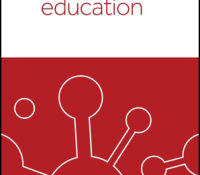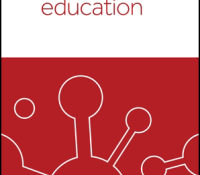eric.ed.gov har udgivet: Previous research shows inconsistent relationships between parent involvement and academic achievement and often asks why such inconsistencies occur. The research proposes a theoretical model that separates parent involvement into those practices linking parents to children and those practices linking parents to other adults in the school environment. The researcher hypothesizes that parent-child (i.e. discussion and monitoring) and parent-school (i.e. educational support strategies and Parent Teacher Organization involvement) practices will differentially affect student attitudes (educational expectations), behaviors (absenteeism, homework, truancy), and achievement (math and science). Using a national survey conducted in the United States of schools and students, the National Education Longitudinal Study (NELS:88), The research estimates a series of hierarchical models to test the direct and indirect effects of parent involvement on student attitudinal, behavioral and academic… Continue Reading →
Like this:
Like Loading...
eric.ed.gov har udgivet: America’s leaders are increasingly concerned about U.S. competitiveness in a rapidly globalizing world. In response, during the 2006 State of the Union Address, President Bush introduced the American Competitiveness Initiative (ACI) to promote policy that bolsters student achievement in the areas of science, technology, engineering, and mathematics (STEM). At the Business-Higher Education Forum (BHEF) summer 2006 meeting, Secretary of Education Margaret Spellings discussed provisions of the ACI that address teacher shortages in mathematics and science, and corresponding student academic readiness. Specific ACI education provisions include the Adjunct Teacher Corps, the Advanced Placement-International Baccalaureate (AP/IB) Incentive Program, the National Math Panel, Math Now for Elementary Students, and Math Now for Middle School Students. (Contains 2 boxes, 2 figures and 1 table.) Link til kilde
Like this:
Like Loading...
eric.ed.gov har udgivet: This paper presents results of a study that sought to answer the question, “How does integrating dance and math in an intense co-teaching model of integration affect student attitudes toward learning math?” The goal of the dance/math project was to engage students in math in ways that reached students’ multiple intelligences and encouraged them to make complex connections and try new problem solving techniques. The classroom teachers who designed and implemented the project hypothesized that students who worked with a dancer once a week to learn math concepts would become more engaged in mathematics and have more successful and positive experiences with mathematics than students who did not work with a dancer. Overall there was a significant difference between the dance/math students’ and the non-dance/math students’ attitudes… Continue Reading →
Like this:
Like Loading...
eric.ed.gov har udgivet: Social-emotional comprehension involves encoding, interpreting, and reasoning about social-emotional information, and self-regulating. This study examined the mediating pathways through which social-emotional comprehension and social behaviour are related to academic outcomes in two ethnically and socioeconomically heterogeneous samples totaling 340 elementary-aged children. In both samples, social-emotional comprehension, teacher report of social behaviour, and academic outcomes were measured in a single school year. In both samples, structural equation models showed that the relationship between social-emotional comprehension and reading was mediated by socially skilled behaviour. In one sample, but not the other, the relationship between social-emotional comprehension and math was mediated by socially skilled behaviour. This paper advances our understanding of the mechanisms through which social-emotional factors are associated with academic outcomes. [This article was published in “Infant and Child… Continue Reading →
Like this:
Like Loading...
eric.ed.gov har udgivet: The present study investigates the extent to which a program guided by the principles of critical pedagogy, which seeks to develop “critical consciousness,” is associated with the improved academic performance of students attending a low-performance middle-school in Buffalo, New York. The students were enrolled in an in-school academic support program called the “Community as Classroom”, which used critical project-based learning to show students how to improve neighborhood conditions. The study found that the Community as Classroom program bolstered student engagement as reflected in improved attendance, on-time-arrival at school, and reduced suspensions. Although class grades did not improve, standardized scores, particularly in Math and Science, dramatically improved for these students from the lowest scoring categories. We suspect that given increased student engagement and dramatically improved standardized test scores,… Continue Reading →
Like this:
Like Loading...

tandfonline.com har udgivet en rapport under søgningen “Teacher Education Mathematics”: Abstract Abstract This study aimed to investigate the impact of a flipped classroom on the self-regulated learning (SRL) and academic achievement of seventh-grade junior high school students. A quantitative approach was used to compare the traditional and flipped classroom approaches. The data were obtained using the Motivated Strategies for Learning Questionnaire (MSLQ) along with students achievement scores. Cognitive learning strategies and metacognitive self-regulation strategies were investigated as indicators of students SRL strategies. The results indicated that 64 seventh-grade participants demonstrated a good-to-high level of practicing SRL within the flipped classroom environment. Moreover, the student participants appeared to self-regulate their metacognitive learning strategies in the flipped classroom environment more than those in the traditional learning environment. In terms of their academic… Continue Reading →
Like this:
Like Loading...
tandfonline.com har udgivet en rapport under søgningen “Teacher Education Mathematics”: Abstract Abstract Academic self-efficacy is mostly construed as specific; task-specific, course-specific or domain-specific. Previous research in the Danish university context has shown that the self-efficacy subscale in the Motivated Strategies for Leaning Questionnaire is not a single scale, but consists of two separate course- and activity-specific scales; the Specific Academic Learning Self-Efficacy Scale (SAL-SE) and the Specific Academic Exam Self-efficacy scale (SAE-SE). The SAL-SE and the SAE-SE subscales have previously been found to fit the Rasch model, have excellent reliability, and initial evidence of criterion validity has been established. The aim of this study was to conduct a new validity study of the SAL-SE and SAE-SE scales in the Danish university context. Specifically, whether the original findings of fit to… Continue Reading →
Like this:
Like Loading...
tandfonline.com har udgivet en rapport under søgningen “Teacher Education Mathematics”: Classroom versus individual working memory assessment: predicting academic achievement and the role of attention and response inhibition Link til kilde
Like this:
Like Loading...
eric.ed.gov har udgivet: Formative assessment is a process that engages teachers and students in gathering, interpreting, and using evidence about what and how students are learning in order to facilitate further student learning during a short period of time. The process offers the potential to guide educator decisions about midstream adjustments to instruction that address learner needs in a timely manner. Formative assessment can be implemented in classrooms in various ways. For example, formative assessment can be quick and informal, such as giving students “I learned…” prompts to reflect on and discuss their progress toward lesson objectives. Formative assessment can also be more formal and involve multiple components, such as curriculum-based measurement, to frequently track and analyze individual student learning for the purpose of modifying instruction as warranted (Black &… Continue Reading →
Like this:
Like Loading...
eric.ed.gov har udgivet: This study aims to investigate the effects of Science Technology Education Math (STEM) practices on academic achievement and motivations of students in the 5th grade of middle school in “Exploring and Knowing the World of Living Creatures” section in Science lecture. The study was designed in a semi-experimental pattern with pre-test post-test control group. A middle school in the center of Antakya was selected by appropriate sampling method. The sample of the study was formed by the 5th grade students who were studied in 2 sections where the same teacher taught. A group of students in one section formed the control group of students while the other branch formed experimental group. The unit ‘Exploring and Knowing the World of Living Creatures’ was explained through the lesson plans… Continue Reading →
Like this:
Like Loading...


